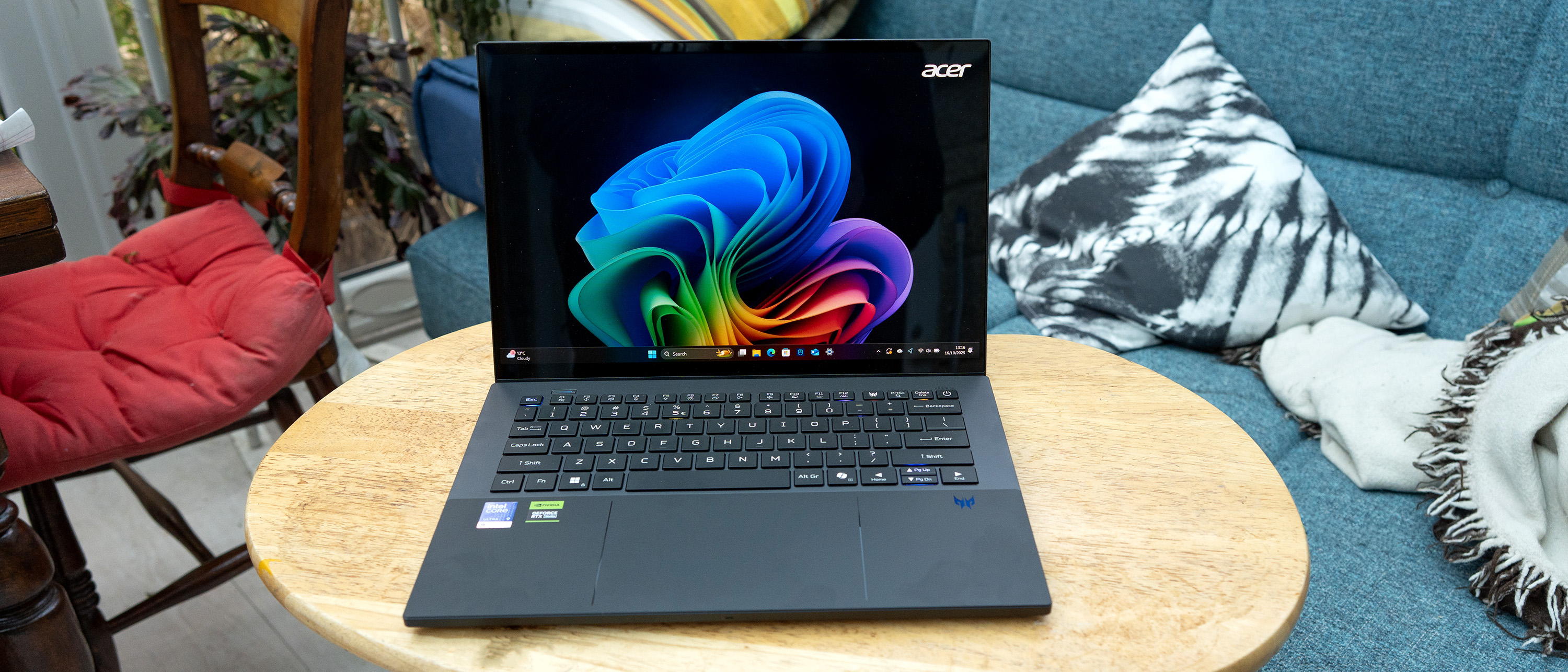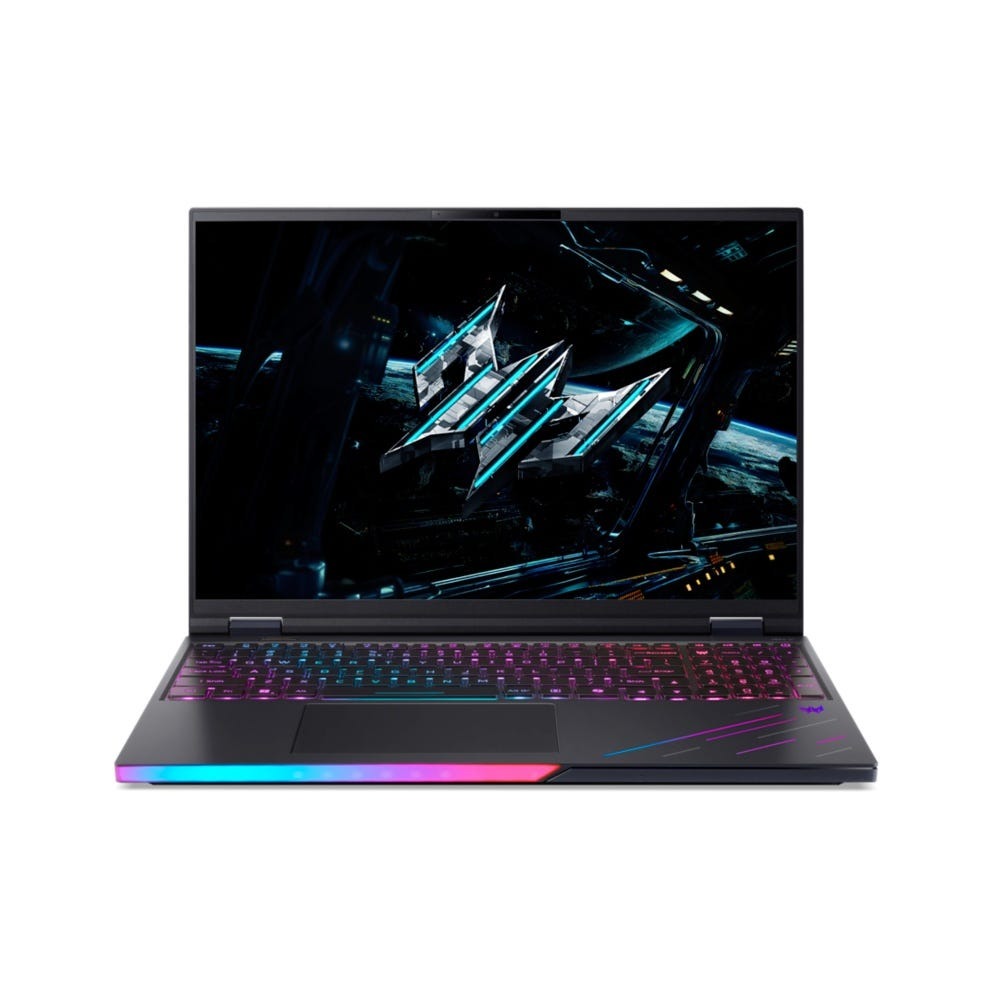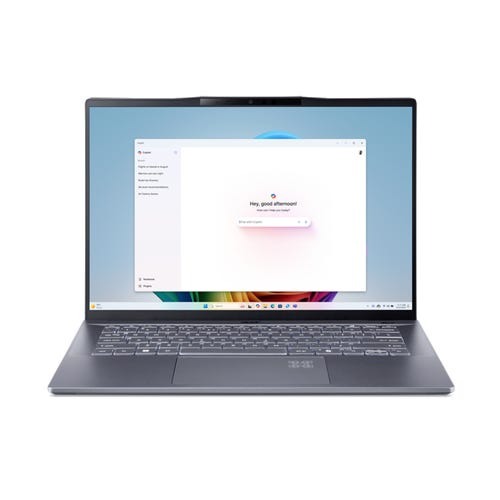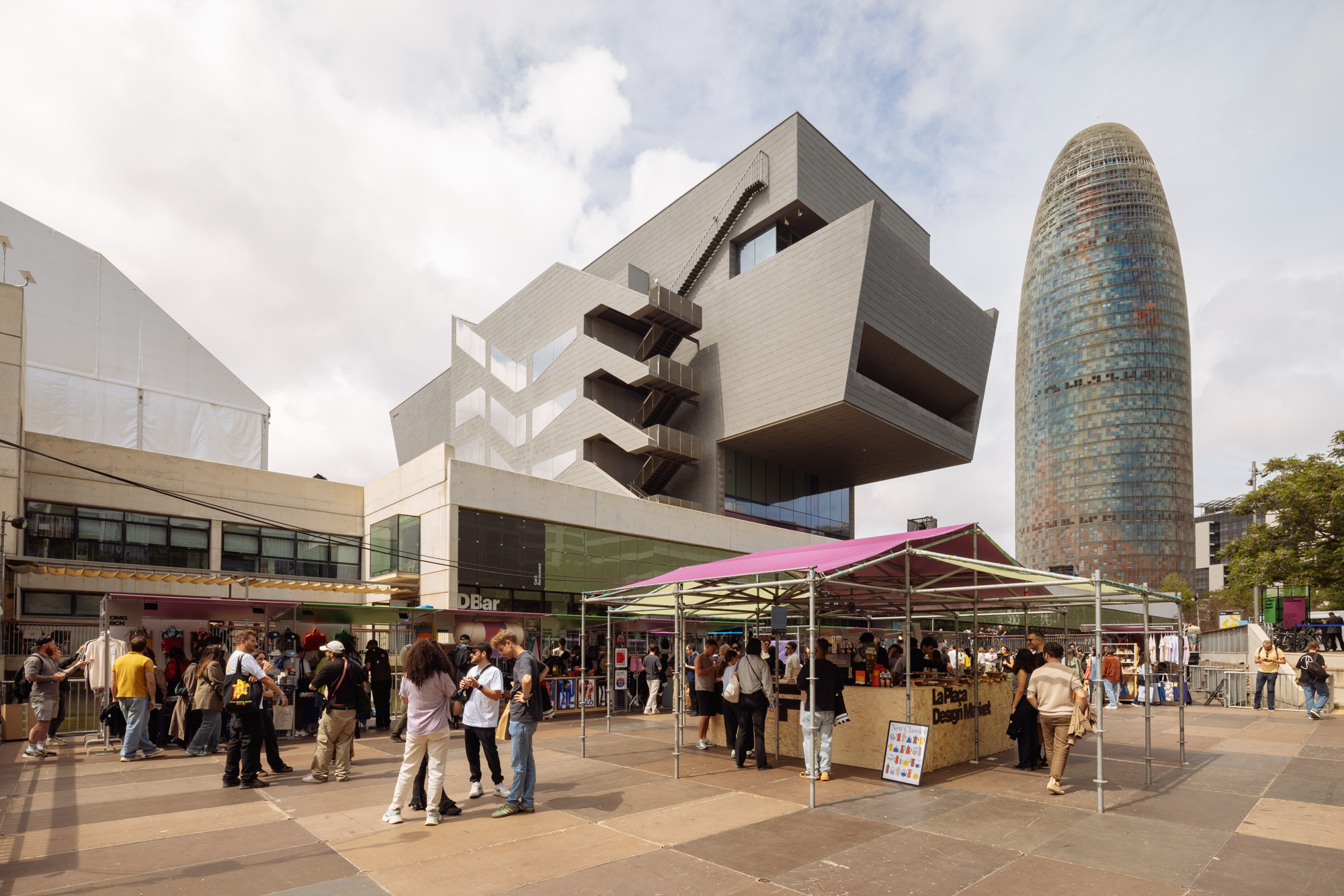Our Verdict
With its cutting-edge components and compact frame, the Acer Predator Triton 14 AI looks like a creative powerhouse, and it can be exactly that. There's even a stylus in the box, though it's limited in use. It’s an expensive laptop though, and there are a lot of other machines out there that will compete for your attention.
For
- Compact and powerful
- Lovely OLED screen
- Stylus in the box
Against
- Not keen on third-party chargers
- Stylus only works on touchpad
- Which one’s the Thunderbolt port?
Why you can trust Creative Bloq
Acer’s latest 14-incher, the Acer Predator Triton 14 AI comes with the Nvidia Studio logo on the front and studio drivers installed, so it’s fairly clear that, although the manufacturer likes to refer to it as a ‘gaming’ or ‘AI’ laptop, the creative arts are well within its sights. With its 50-series GPU and second-gen Lunar Lake Intel Core Ultra processor, this represents the cutting edge of laptop technology at the end of 2025.
The Triton’s USP is its size: 14-inch laptops are always compact, but given the kind of ferocious internals it’s stuffed with, being just 17.3mm at its thickest point makes this machine especially slender. What this means for its performance, and whether it will need to throttle some of that speed to avoid heat buildup, we’ll see in our testing. Will it be enough to compete among the best laptops for 3D modelling? Let's find out.
Key specifications
CPU: | Intel Core Ultra 9 288V |
NPU: | Intel AI Boost (48 TOPS) |
Graphics: | Nvidia GeForce RTX 5070 8GB |
Memory: | 32GB LPDDR5X |
Storage: | 1TB SSD, MicroSD |
Screen size: | 14in |
Screen type: | OLED |
Resolution: | 2880 x 1800 |
Refresh rate: | 120hz |
Colour gamut (measured): | 97% P3 |
Brightness (measured): | 400 nits |
Ports: | HDMI, 2x USB 3.2 Gen 2 Type-A, 1x Thunderbolt 4, 1x USB 3.2 Gen 2 Type-C, 3.5mm audio |
Wireless connectivity: | Wi-Fi 7, Bluetooth 5.4 |
Dimensions: | 17.3 x 322 x 221mm |
Weight: | 1.6kg |
Design, build and display
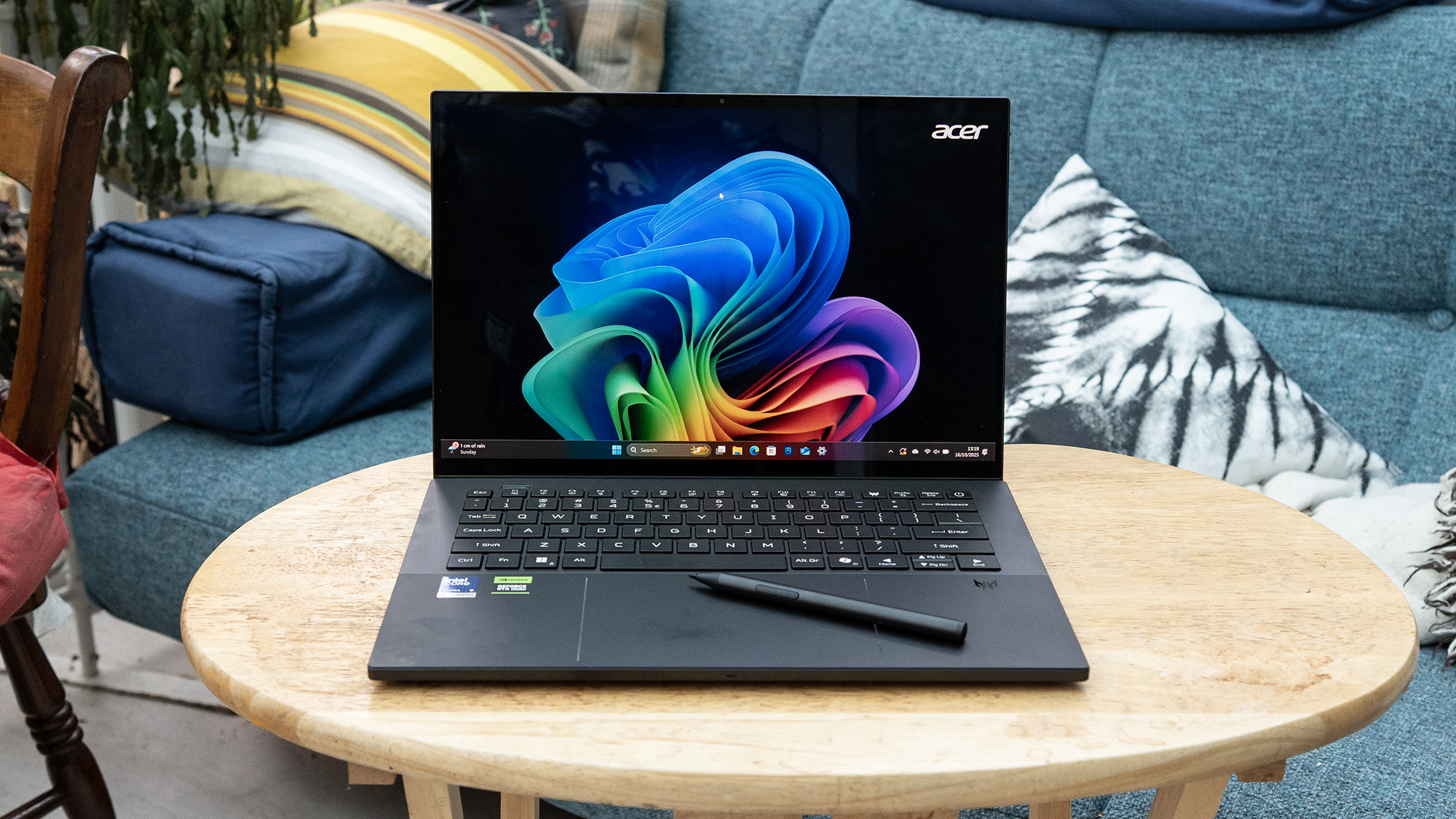
• Thin, but not that thin
• Stylus in the box
The Acer Predator Triton 14 is larger than a MacBook Air, and indeed slightly thicker and wider than a 14-inch MacBook Pro, but still feels compact when you pick it up. The 14-inch form factor is perfect for portability, and Acer has fitted the Triton with flat sides and a metal casing so you won’t worry about it catching on anything when you slide it into your bag. A shiny line down the back of the casing, just below the hinge, catches the light in rainbow colours when the laptop is folded, and it’s an attractive addition.
The ports are placed at the sides of the chassis, and are all easily accessible, though the USB-A and USB-C ports on the right are too close together, and a wide USB flash drive or the receiver dongle that comes with older Xbox controllers will block the port next door. The left-hand side has a larger gap between them, and it would have been nice to see this repeated on both edges.
The trackpad is a slab of glass illuminated by white lights at the sides, and in conjunction with the stylus that comes in the box makes an excellent note-taking surface, though it’s really too small for most kinds of digital art. It is worth noting there's nowhere on the body to stash it, not even a magnet for it to stick to. The OLED screen is touch-sensitive too, though only for your fingers, and puts out a lot of colour and light: 100% of sRGB, 95% of Adobe RGB, and 97% of DCI-P3, plus 400 nits, in our tests.
Design score: 4/5
Daily design news, reviews, how-tos and more, as picked by the editors.
Features
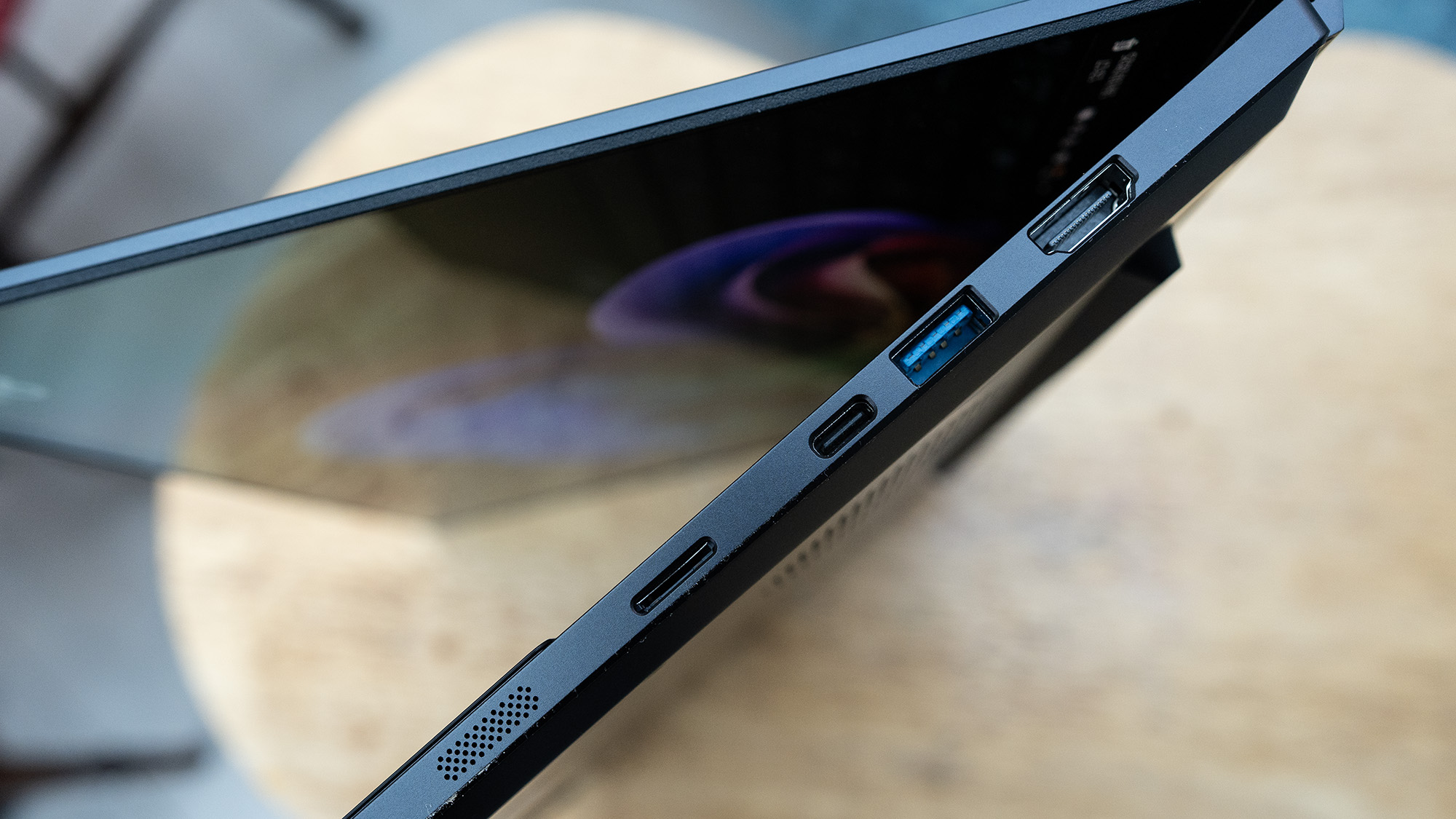
• Only one Thunderbolt
• Colourful OLED screen
Acer says one of the Type-C ports on the Triton is a Thunderbolt 4, but good luck knowing which one. They’re identical, with no logo next to the fast one, so it may take a little trial and error with a fast drive to get them straightened out in your mind. It’s the one on the left, we’re pretty sure, though it will charge through either.
This slight awkwardness is balanced out by some splendid features elsewhere. A MicroSD card slot is extremely useful for drone pilots and action camera users, though a full-size slot to take the cards from mirrorless cameras would have been better. Open the laptop up, and you will reveal a nicely spaced keyboard which takes up the full width - the speakers are relegated to tiny grilles on the sides - and there's no numpad. The keys are pretty good considering the thickness of the Triton, with a good level of springiness as you release them.
The key layout makes the best use of space, and there's a dedicated button above F1 for swapping quickly between power modes, for those moments when you suddenly need a bit more oomph because you’re working very hard (or want to turn the ray-tracing on in Cyberpunk 2077). There's rainbow lighting beneath the keys, which you’ll need to use Acer’s software to switch off - though we do rather like the way it spells out ‘OS’ in lights when Windows puts up a notification - and a glowing logo on the back of the lid too.
Feature score: 3/5
Benchmark scores
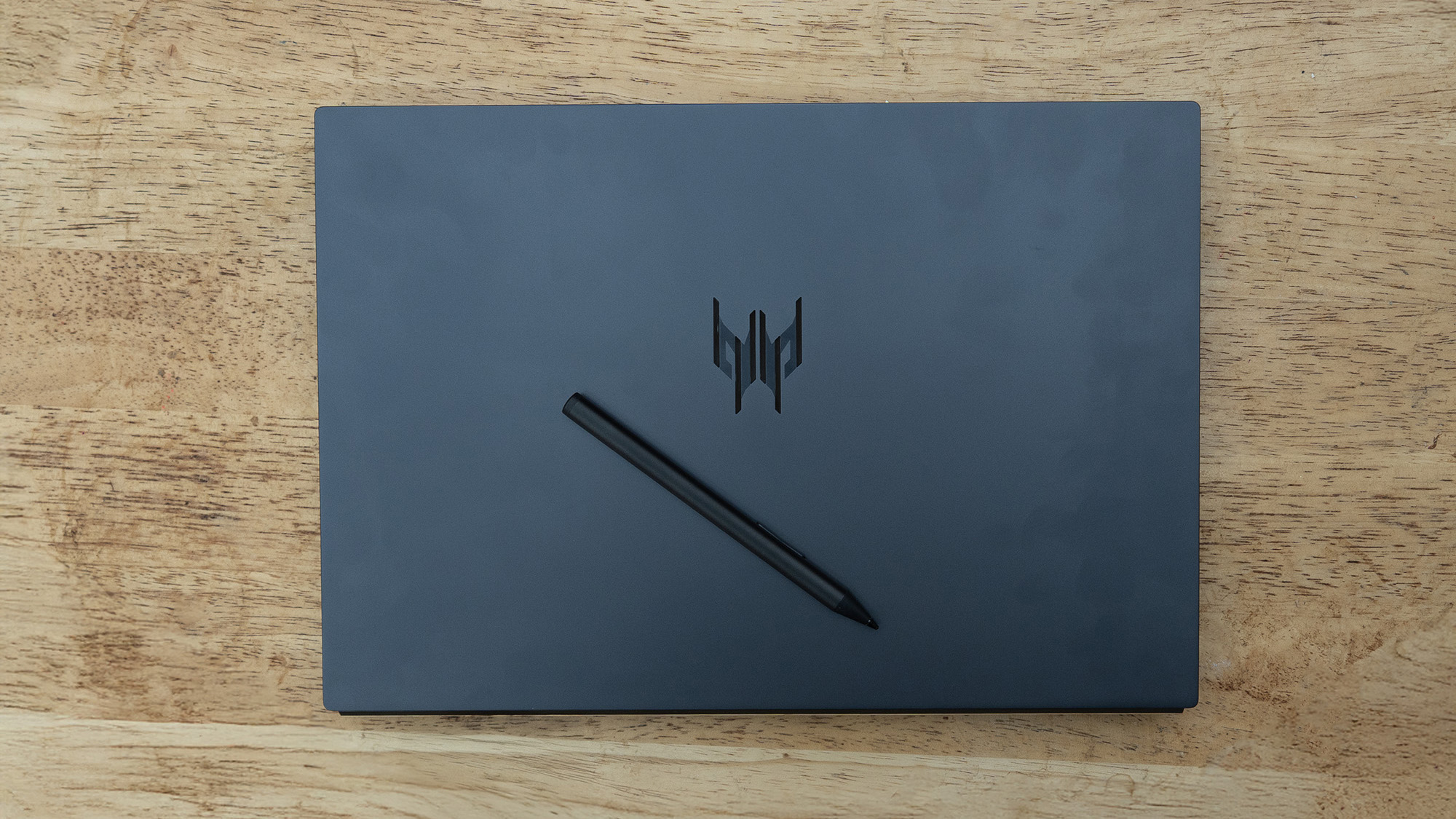
We test every one of our laptops using the same benchmarking software suite to give you a thorough overview of its suitability for creatives of all disciplines and levels. This includes:
• Geekbench: Tests the CPU for single-core and multi-core power, and the GPU for the system's potential for gaming, image processing, or video editing. Geekbench AI tests the CPU and GPU on a variety of AI-powered and AI-boosted tasks.
• Cinebench: Tests the CPU and GPU's ability to run Cinema 4D and Redshift.
• UL Procyon: Uses UL Solutions' Procyon software suite to test the system's ability for AI image generation in Stable Diffusion, its Microsoft Office performance and its battery life in a looping video test.
• Topaz Video AI: We use Topaz Video AI to test the system's ability to upscale video and convert video to slow-motion.
• PugetBench for Creators: We use the PugetBench for Creators benchmarking suite to test the system's ability to run several key tasks in Photoshop and Adobe Premiere Pro, as well as its performance when encoding/transcoding video.
• ON1 Resize AI: Tests the system's ability to resize 5 photos to 200% in a batch process. We take the total time taken to resize the images and divide by 5.
Performance
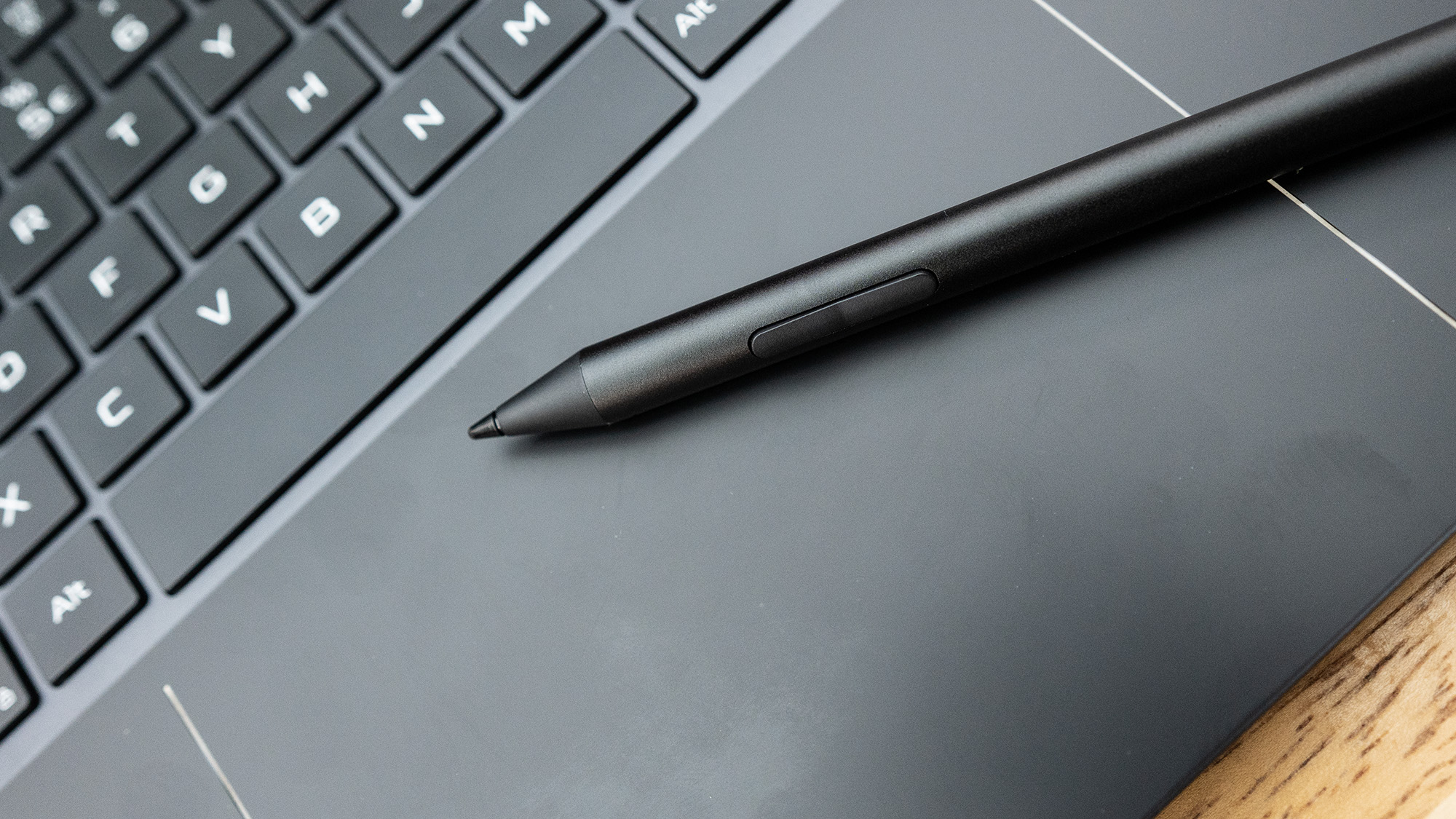
• Almost seven hours of battery life
• Needs the right charger
With this kind of power inside, we were expecting great things from the Triton, but the first run of our benchmark suite was disappointing. The reason? It wasn’t connected to the charger that came in the box, but instead one of similar wattage that should have been good enough to power it - lesson learned, as using the Acer charger unlocks the Turbo mode that cranks up the fans, prompting us to run the tests again. A laptop like this generates a lot of heat, and evicting that heat from inside a compact casing can be a big job, some laptops preferring to throttle their performance rather than get close to their thermal cutout temperatures.
Acer’s dual-fan vapour chamber cooling system (which claims to be the world’s first to use a graphene-based thermal compound in a laptop) does an excellent job, though it’s worth noting that there are vents on the bottom you’ll want to keep clear of. You’ll certainly notice the fans while it’s working, but they’re really not that bad. The Triton came with Nvidia’s Studio drivers installed, but a re-run of the benchmarks with the latest Gaming drivers saw a difference of just 2% in Geekbench 6’s GPU workout.
In the same program, however, putting the Triton into Turbo mode added 8% to its multi-core CPU score, and another 8% to its GPU score. It also brought a huge improvement to our AI workload, improving scores by up to 43% in the single-precision test, and added a whopping 50% to the raw video processing score in our Pugetbench Premiere Pro test. Having the fans run more strongly makes a big difference, therefore, and the extra stability provided by the Studio drivers may be worth more than a tiny increase in power for pro workloads.
In some places, the Triton lags a little bit behind other 5070-equipped gaming laptops, but not really enough to notice unless you’re a gamer counting every frame. What it does surprisingly well in is the battery life test: just playing a video for hours doesn’t tax the GPU much, Turbo mode gets switched off because it’s running on battery, and the Triton eked out nearly seven hours of use, an excellent result for a gaming laptop.
Performance score: 3/5
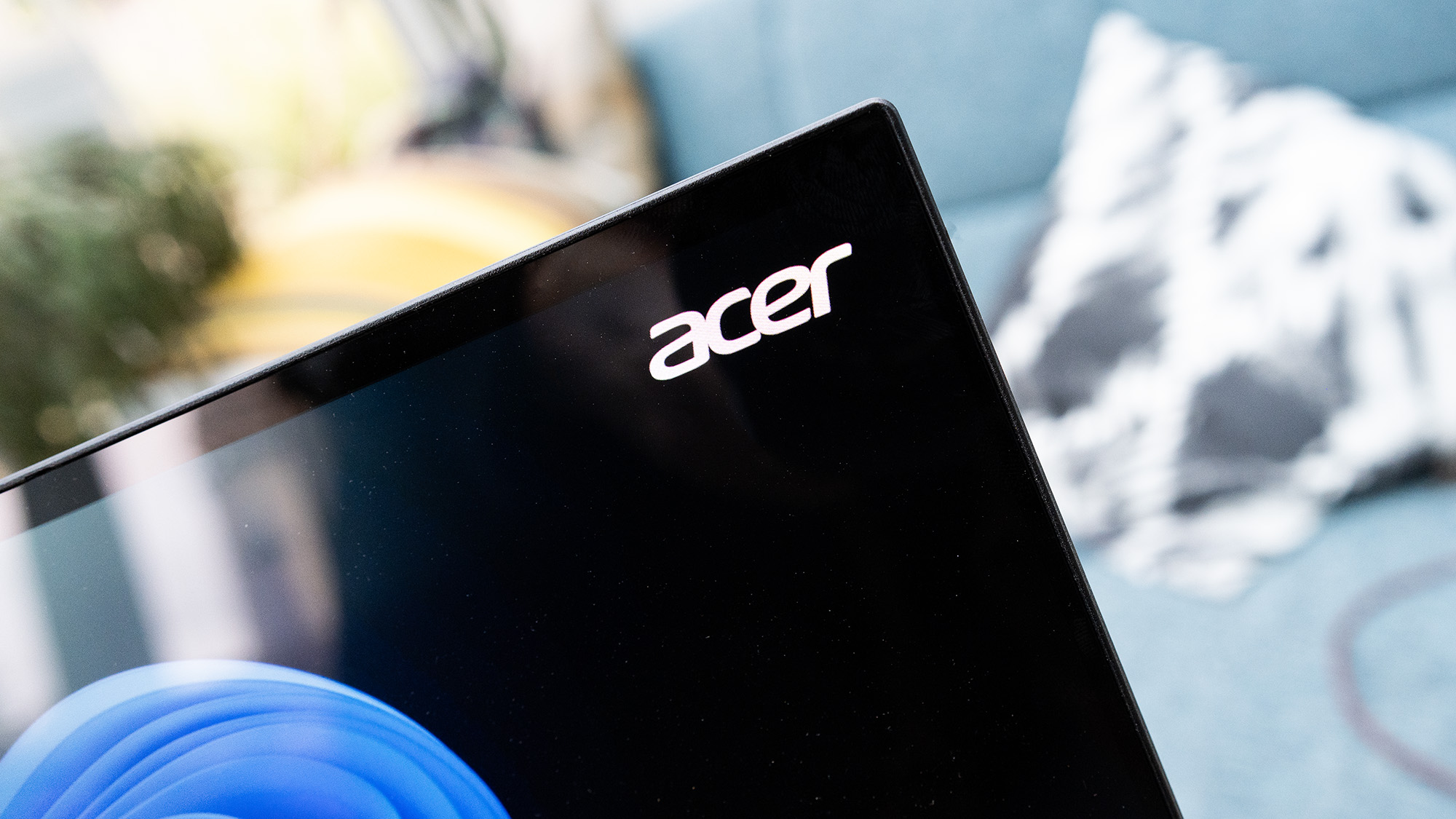
Price
There's no getting away from it: at £2,700 this is an expensive laptop. However, its GPU score in Geekbench is three times that of an Apple M4, which might make it worthwhile, though its multi-core CPU score is 32% lower than the Mac’s. You can spec a 14in MacBook Pro with an M4 Pro (possibly an M5 by the time you read this) and 48GB of RAM for £2,799, which is going to make a tough decision depending on the workload you have to chew through.
Value score: 3/5
Who is it for?
• Graphics pros
With the combination of processors the Triton has under its casing, all kinds of graphics work is within its capability. It flies through Premiere, renders like a charm, and can run AI models with ease.
Attributes | Notes | Rating |
|---|---|---|
Design: | Nicely made with a compact metal casing. | 4/5 |
Features: | Only one Thunderbolt, and you'll have to guess which one it is. | 3/5 |
Performance: | Needs the correct charger to unlock Turbo mode. | 3/5 |
Value: | Expensive, but then so is the competition. | 3/5 |
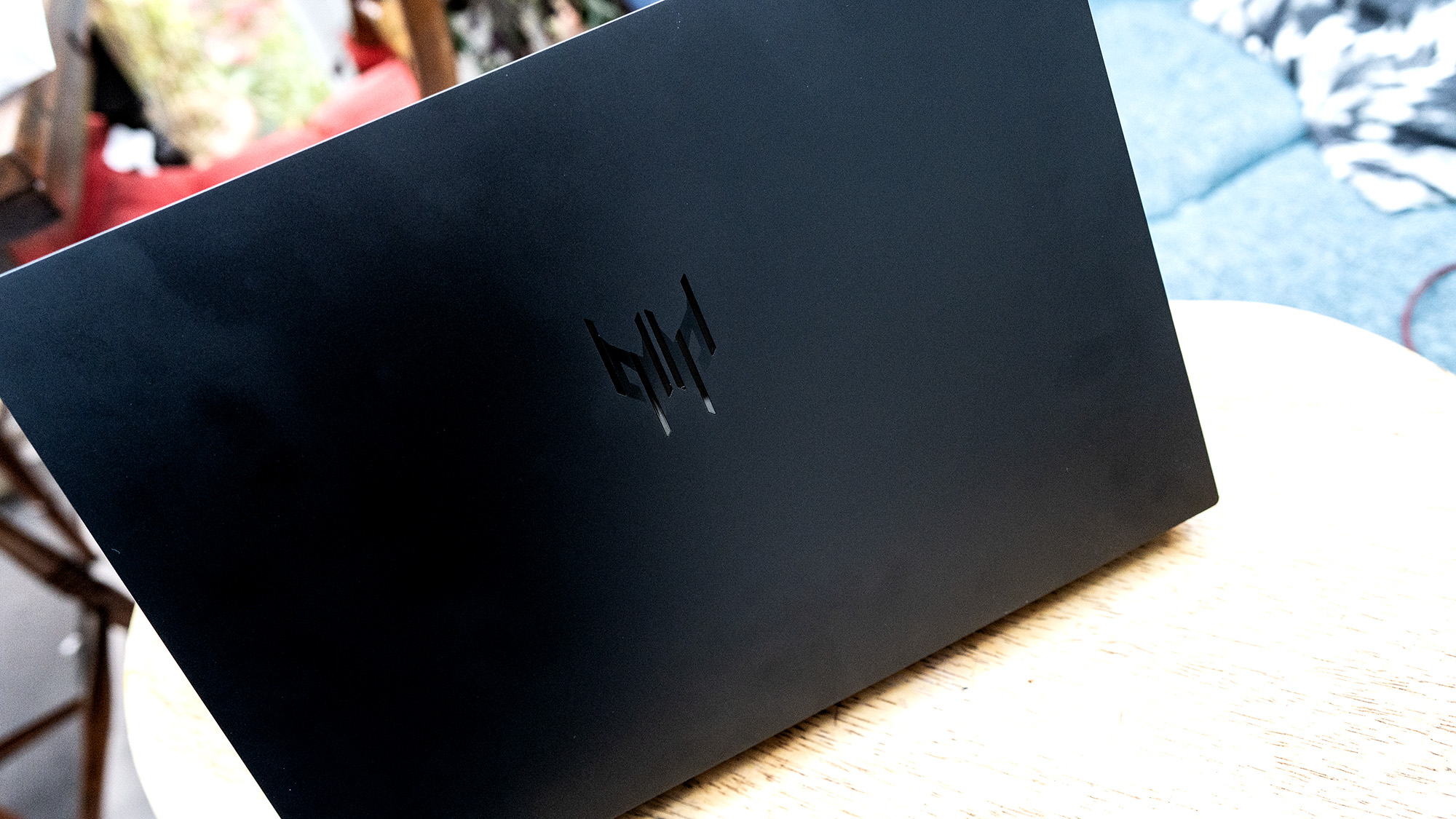
Buy it if...
- You process a lot of graphics
- AI is part of your workflow
- You want a compact but powerful laptop
Don't buy it if...
- You can’t stomach the price
- Lightness is important
- You want to use your own charger
Also consider
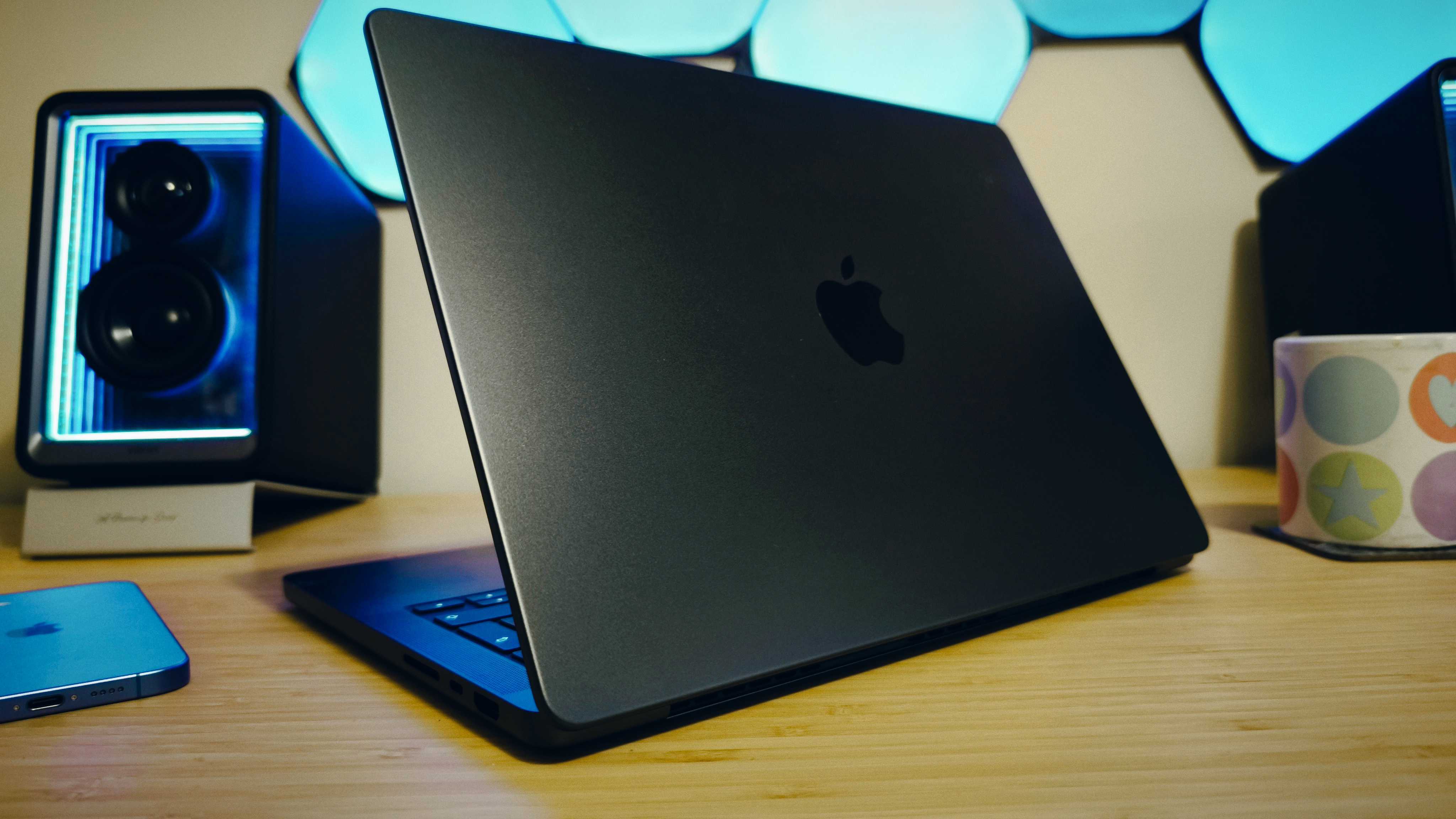
It's incredibly well built, the screen is predictably great and it's loaded with a bunch of ease-of-use features for anyone, plus the addition of Apple Intelligence adds an AI-shaped dimension to the experience of having one.
Pros
- Great design
- Easy to set up and use
- Fantastic for static visual creative pursuits
Cons
- Graphic performance underwhelms
- Mucho expensive
out of 10
With its cutting-edge components and compact frame, the Acer Predator Triton 14 AI looks like a creative powerhouse, and it can be exactly that. There's even a stylus in the box, though it's limited in use. It’s an expensive laptop though, and there are a lot of other machines out there that will compete for your attention.

Ian Evenden has been a journalist for over 20 years, starting in the days of QuarkXpress 4 and Photoshop 5. He now mainly works in Creative Cloud and Google Docs, but can always find a use for a powerful laptop or two. When not sweating over page layout or photo editing, you can find him peering at the stars or growing vegetables.
You must confirm your public display name before commenting
Please logout and then login again, you will then be prompted to enter your display name.
